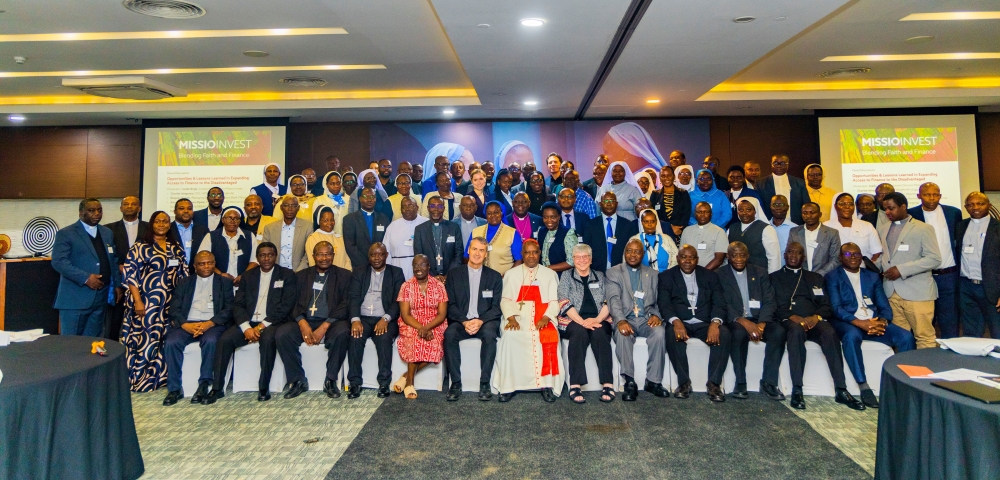Rwanda is one of the few African countries that are doing well in terms of improving health care systems and over the years, there has been increasing evidence that efforts are positively impacting on the health of Rwandans thus accelerating progress towards the Millennium Development goals (MDGs).

Rwanda is one of the few African countries that are doing well in terms of improving health care systems and over the years, there has been increasing evidence that efforts are positively impacting on the health of Rwandans thus accelerating progress towards the Millennium Development goals (MDGs). Despite the terrible history which left most of the structures destroyed including the country’s human resource for health, the nation has risen from the ruins of the past and become a fast growing economy with a united people determined to rebuild the country. Results from a recently disseminated survey, the Demographic and Health Survey (DHS), which is conducted every 5 years, clearly show that Rwanda’s healthcare system has tremendously improved over a period of 5 years since 2005 to 2010. The DHS report is designed to monitor the population and provide up-to-date information on the country’s health situation in a bid to inform policy making as regards improving access to quality healthcare. The recently released report shows progress in several key domains such as control of malaria, HIV/AIDS and maternal and child mortality among others which still remain a challenge to several countries in sub Saharan Africa. Remarkable strides in increasing access to family planning methods and information have resulted into universal knowledge of family planning among women and men aged 15-49 as well as increased use of family planning in the past years. This is a good indicator that population growth can be controlled since the biggest percentage of people in reproductive age, know what family planning is all about (45 percent of married women currently use a modern method of family planning) and fertility rates over the past two decades have declined from 6.1 children per mother in 2005 to an average of 4.6 children in 2010. Health officials are quick to add that the country will attain its goals if the unmet need (19 percent) for family planning especially among the rural women is equally met. Malaria on the other hand reduced remarkably and progress showed that its prevalence in Rwanda decreased by half in children under five and women respectively. Household ownership of insecticide treated mosquito nets stands at 82 percent with the highest ownership in the Eastern province where the burden is still high. This has significantly reflected on the progress as regards curbing maternal and child mortality (for instance 70 percent of children below five and 73 percent of pregnant women slept under a mosquito net a night before the survey was done). Anti malaria drugs are equally accessible on time and children who may suffer from malaria have their blood tested after which they receive recommended courses of treatment. In many ways statistics show the improvement in the health trends over the years, but, the Minister of Health Dr Agnes Binagwaho emphasizes that despite this progress, a lot more needs to be done to improve the health indicators. According to the DHS, maternal health has improved by far with statistics showing that 69 per cent of births were assisted by a skilled provider (doctor, nurse, medical assistant or midwife) and occurred in health facilities. Maternal mortality rates have dropped from 750 to 476 deaths per 100,000 live births. Citing more improvements as regards childhood mortality, Dr. Binagwaho states that under five mortality rates have decreased from 133 deaths per 1000 live births to 76 over a 5 year period and still insists that more must be done to further curb mortality levels. "Whereas we seem to be doing well in various areas according to the survey, there’s need to put more effort to ensure that mortality rates reduce even further. Losing one life due to preventable causes is not acceptable so more efforts must be geared towards achieving much better results and increase the life expectancy to that of mid income countries,” the Minister said. The 2010 DHS report tells a success story and gives hope to Rwandans that universal access to quality healthcare can be achieved. A lot has been done to achieve the impressing results but a lot more needs to be done to ensure sustainable results. Health officials add that with the trend, at which the health sector is registering success in caring for Rwandans, the future is brighter and the country is assured of a healthy population that will contribute to its economic development. The author is the Media Relations Officer RBC/Rwanda Health Communication Centre




